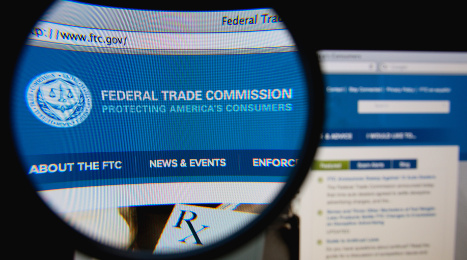If a federal investigation into your dealership or finance company ever happens, perhaps here is some good news regarding how it might unfold.
Federal Trade Commission acting chairman Maureen Ohlhausen on Monday announced several internal process reforms in the agency’s Bureau of Consumer Protection that are designed to streamline information requests and improve transparency in commission investigations.
The FTC explained the reforms are part of Ohlhausen’s efforts to further the agency’s mission to protect consumers and promote competition without unduly burdening legitimate business activity.
“It is our duty to carry out our vital mission in the most effective and efficient way possible,” Ohlhausen said. “The changes announced today will reduce unnecessary and undue burdens of FTC investigations without compromising our ability to protect American consumers.”
This past April, Ohlhausen announced new internal working groups on agency reform and efficiency to improve processes and focus resources where they will do the most good for the public. As part of this initiative, Ohlhausen directed the Bureau of Consumer Protection to identify best practices to streamline information requests and improve transparency in investigations.
The process reforms announced on Monday addressed civil investigative demands (CIDs) in consumer protection cases and include:
—Providing plain language descriptions of the CID process and developing business education materials to help small businesses understand how to comply
—Adding more detailed descriptions of the scope and purpose of investigations to give companies a better understanding of the information the agency seeks
—Where appropriate, limiting the relevant time periods to minimize undue burden on companies
—Where appropriate, significantly reducing the length and complexity of CID instructions for providing electronically stored data
—Where appropriate, increasing response times for CIDs (for example, often 21 days to 30 days for targets, and 14 days to 21 days for third parties) to improve the quality and timeliness of compliance by recipients.
In addition, to ensure companies are aware of the status of investigations, the FTC said it will adhere to its current practice of communicating with investigation targets concerning the status of investigations at least every six months after they comply with the CID.
At least one compliance expert applauded the FTC’s actions. Steve Levine currently is chief legal and compliance officer at Ignite Consulting Partners.
"I’m encouraged by the acting chairman’s proposals for internal reform,” Levine said in an email to SubPrime Auto Finance News. “These will increase transparency and understanding and help small businesses meet the expectations of the FTC.
“I’m especially glad to see emphasis on plain language and business education as CIDs can take a small business by surprise and they are often unprepared to respond as quickly as is required,” continued Levine, who also has been chief legal and compliance officer of AutoStar Solutions, Sigma Payment Solutions and SecureClose as well as general counsel for Regional Acceptance Corp.
The FTC noted Ohlhausen initiated this project in part to address concerns raised by members of Congress and the American Bar Association Antitrust Section’s Presidential Transition Report about the investigational burdens on legitimate companies.
“The agency continues to consider other reforms,” the FTC said.
A broad collection of industry representatives already is gearing up to generate a significant pushback against the Consumer Financial Protection Bureau, which earlier this week spelled out a new rule prohibiting the use of class action waivers in arbitration clauses.
And a pair of legal practitioners reached by SubPrime Auto Finance News gauged how successful these groups might be in persuading Congress to squash this bureau mandate. Randy Henrick is an auto dealer compliance expert who offers compliance consulting services to dealers at www.AutoDealerCompliance.net. He served for 12 years as Dealertrack’s lead regulatory and compliance attorney.
“Despite CFPB director Richard Cordray’s fanfare in announcing the rule for the alleged protection of consumers (even though the CFPB’s own study revealed that it is class action plaintiffs’ lawyers who make windfalls on fees in class actions with class members getting little of the final ante), I’m betting the rule will never take effect,” Henrick wrote in a blog post on his website.
Henrick touched on not only the furor shared by organizations such as the American Financial Services Association and the National Independent Automobile Dealers Association, he also mentioned how Republican lawmakers and perhaps President Trump could be dismissing Cordray from his post as his current term is more than half expired.
“Already, auto industry and consumer finance lobbying groups have indicated they will lobby their Congress people to use the Congressional Review Act (CRA) or enact other legislation to undo the arbitration rule. They, too, could bring or join lawsuits against it that could delay its effect until after Cordray leaves. I think the likelihood of the rule surviving Corday are not very high,” Henrick wrote.
In October 2015, the bureau published an outline of the proposals under consideration and convened a Small Business Review Panel to gather feedback from small companies. Besides consulting with small business representatives, the bureau sought comments from the public, consumer groups, industry and other interested parties before continuing with the rulemaking.
Last May, the bureau issued a proposed rule that included a request for public comment. The CFPB said it received more than 110,000 comments.
“The final rule is pretty consistent with the proposed rule they issued a while back, so from a substantive perspective, it’s no surprise,” Hudson Cook chairman Michael Benoit told SubPrime Auto Finance News. “I think politics was the only thing in the way of issuing the final rule (well, that and wading through 110,000 public comments).
“I think the director probably feels the odds are good that the current Republican infighting and focus on healthcare and tax reform will serve to keep the Congress distracted and uninclined to use their veto power under the Congressional Review Act. That remains to be seen,” Benoit continued.
“But in any event, now is as good a time as any to put this rule out and it’s probably important to the director that it come out on his watch,” he went on to say.
SubPrime Auto Finance News then asked about how much work is ahead for the auto finance industry to comply with this new rule.
“There are a number of avenues of resistance for the industry,” Benoit said. “First, it can lobby Congress to use its CRA authority to invalidate the rule (it’s a simple majority vote, so you only need 51 votes in the Senate).
“Second, you can attack the rule as inconsistent with the mandate Congress gave in Dodd-Frank, i.e., Congress required in Dodd-Frank that any arbitration rule be ‘in the public interest’ and ‘for the protection of consumers,’” he continued.
“Arguably, the CFPB’s own study reveals that the rule is neither,” Benoit added.
Benoit also touched on other elements that might be a path to challenge this new CFPB rule.
“You can also argue that the rule is inconsistent with the aforementioned study in that Dodd-Frank requires any arbitration rule be consistent with the arbitration study the CFPB was mandated to undertake,” he said. “There is plenty of data in the study that would argue against the rule being published. You could also make constitutional arguments, e.g., Congress impermissibly delegated legislative authority to the executive branch when it authorized the CFPB to write a rule that conflicts with existing legislation, i.e., the Federal Arbitration Act.
“The argument is that only Congress can amend a federal statute. I’m sure there are other avenues of attack as well,” Benoit went on to say.
So if the rule actually does come into full effect, Benoit projected how the industry could continue.
“I would think ‘compliance’ with the rule is pretty simple, i.e., use agreements without a class action waiver in the arbitration clause. That’s a fairly easy fix for forms companies and institutions,” he said.
“The bigger problem for industry is determining how much increase in credit pricing is necessary to cover the greater liability that comes with class action exposure,” Benoit concluded.
Clearly the industry is “disappointed” that the Consumer Financial Protection Bureau earlier this week issued a final rule prohibiting the use of class action waivers in arbitration clauses. The American Financial Services Association, the National Independent Automobile Dealers Association and the American Bankers Association all used that specific adjective when relaying their reaction to the CFPB’s actions.
And the Consumer Bankers Association also didn’t cheer the decision made by the bureau, which announced a new rule to ban dealerships and auto finance companies from using mandatory arbitration clauses “to deny groups of people their day in court.”
AFSA asserted the CFPB has finalized a rule on arbitration that ignores its own research and harms consumers, while enriching plaintiff’s attorneys.
“We are disappointed that the bureau has decided to move forward with a final rule,” said Bill Himpler, executive vice president with AFSA. “The bureau has ignored its mandate under the Dodd-Frank Wall Street Reform and Consumer Protection Act to limit arbitration only if such a prohibition is in the public interest and for the protection of consumers.”
AFSA, along with many other trade associations, has submitted a comment letter on the CFPB’s proposed arbitration rule, advocating for alterations in the best interest of both consumers and the industry.
“Numerous reports, including the CFPB’s own study, show the value that consumers derive from arbitration, especially when compared to class-action lawsuits. The CFPB’s study clearly demonstrates that the winner in class-action litigation is almost always the plaintiff’s attorneys, who pocket millions of dollars and leave the consumer with little to no financial compensation,” Himpler said.
NIADA pointed out that the CFPB’s study on arbitration found consumers receive on average more than $5,000 in arbitration hearings compared to roughly $32 in class-action litigation — if they receive anything at all.
“We are disappointed that the bureau has decided to adopt this ill-conceived rule,” NIADA chief executive officer Steve Jordan said. “Today’s action shows the CFPB has decided to put the interests of class-action lawyers above those of the very consumers the bureau is mandated to protect.
“Arbitration has proven to be a faster, less expensive and more effective means of resolving consumer disputes than class-action lawsuits. And consumers who receive an award in arbitration almost always receive more than they would in a class-action lawsuit, a point proven by the CFPB’s own research,” Jordan continued.
“This rule will force small businesses to bear additional costs in defending class-action litigation, particularly meritless suits,” Jordan went on to say. “Those costs will ultimately be borne by consumers, and in the case of those who are credit-challenged, it could prove to be too much.”
ABA president and CEO Rob Nichols also cited the disparity in monies consumers often receive via arbitration versus litigation. Nichols also agreed with the premise that attorneys are likely to receive the greatest windfall via the bureau’s decision.
“We’re disappointed that the CFPB has chosen to put class action lawyers — rather than consumers — first with today’s final rule,” Nichols said. “Banks resolve the overwhelming majority of disputes quickly and amicably, long before they get to court or arbitration. The Bureau’s own study found that arbitration has significant benefits over litigation in general and class actions in particular. Arbitration is a convenient, efficient and fair method of resolving disputes at a fraction of the cost of expensive litigation, which helps keep costs down for all consumers.
“Despite acknowledging these benefits in its own study, the Bureau has chosen to write a rule that would essentially eliminate arbitration — and force consumers into court — by requiring companies to face a flood of attorney-driven class action lawsuits from which consumers receive virtually nothing. Under this final rule, consumers lose,” he continued.
“As Congress considers changes to the CFPB’s structure and accountability, we also urge lawmakers to overturn this rulemaking,” Nichols went on to say.
NIADA senior vice president of legal and government affairs Shaun Petersen said the association will work with congressional leaders to address the arbitration issue legislatively.
“From the outset of this rulemaking process, NIADA has voiced concern about the poor policy reflected in this proposal to both the CFPB and to members of Congress,” Petersen said. “As Congress considers CFPB reform, we will be urging lawmakers to overturn this anti-consumer rule.”
No matter the organization, CBA president and CEO Richard Hunt spelled out the argument representatives are likely to make before federal lawmakers.
“Arbitration has long provided a faster, better and more cost-effective means of addressing consumer disputes than litigation or class action lawsuits. The CFPB’s own study shows the average consumer receives $5,400 in cash relief when using arbitration and just $32 through a class action suit,” Hunt said.
“The real benefactors of the CFPB’s arbitration rule are not consumers but trial lawyers, who pocket over $1 million on average per class action lawsuit. By only using fuzzy math is the CFPB able to interpret these figures as favorable to consumers. Given the longstanding benefits of arbitration, we encourage Congress to move swiftly and overturn this anti-consumer rule,” Hunt went on to say.
Editor’s note: SubPrime Auto Finance News reached out to multiple legal experts to collect their observations on how the industry can move forward. Their assessment will be published in a future report.
Check those installment contracts. Arbitration appears to be no longer an option for dealerships and finance companies to settle conflicts with consumers.
On Monday, the Consumer Financial Protection Bureau announced a new rule to ban companies from using mandatory arbitration clauses “to deny groups of people their day in court.” Bureau officials insisted many consumer financial products accounts have arbitration clauses in their contracts that prevent consumers from joining together to sue their bank or financial company for wrongdoing.
The CFPB explained that “by forcing consumers to give up or go it alone — usually over small amounts — companies can sidestep the court system, avoid big refunds and continue harmful practices.” The CFPB contends its new rule will deter wrongdoing by restoring consumers’ right to join together to pursue justice and relief through group lawsuits.
“Arbitration clauses in contracts for products like bank accounts and credit cards make it nearly impossible for people to take companies to court when things go wrong,” CFPB director Richard Cordray said.
“These clauses allow companies to avoid accountability by blocking group lawsuits and forcing people to go it alone or give up. Our new rule will stop companies from sidestepping the courts and ensure that people who are harmed together can take action together,” Cordray went on to say.
The bureau calculated that hundreds of millions of contracts for consumer financial products and services have included mandatory arbitration clauses. These clauses typically state that either the company or the consumer can require that disputes between them be resolved by privately appointed individuals (arbitrators) except for individual cases brought in small claims court.
While these clauses can block any lawsuit, the CPFB believes that companies almost exclusively use them to block group lawsuits, which are also known as “class action” lawsuits. With group lawsuits, a few consumers can pursue relief on behalf of everyone who has been harmed by a company’s practices.
Bureau officials insisted that almost all mandatory arbitration clauses “force” each harmed consumer to pursue individual claims against the company, no matter how many consumers are injured by the same conduct.
“However, consumers almost never spend the time or money to pursue formal claims when the amounts at stake are small,” the bureau said.
The Dodd-Frank Wall Street Reform and Consumer Protection Act required the CFPB to study the use of mandatory arbitration clauses in consumer financial markets. Congress also authorized the bureau to issue regulations that are in the public interest, that are for the protection of consumers, and which are based on findings that are consistent with the bureau’s study of arbitration.
Released in March 2015, officials recapped that the study showed that credit card issuers representing more than half of all credit card debt and banks representing 44 percent of insured deposits used mandatory arbitration clauses. Yet three out of four consumers the bureau surveyed did not know whether their credit card agreement had an arbitration clause.
“These clauses are not only common and unknown; they are also bad for consumers,” bureau officials said.
By blocking group lawsuits, the CFPB insisted that companies are able to:
—Deny consumers their day in court: The study showed that few consumers ever bring — or consider bringing — individual actions against their financial service providers either in court or in arbitration. Only about 2 percent of consumers with credit cards surveyed said they would consult an attorney or consider formal legal action to resolve a small-dollar dispute. As a result, the real effect of mandatory arbitration clauses is to insulate companies from most legal proceedings altogether.
—Avoid paying out big refunds: Individual actions get less overall relief for consumers than group lawsuits because companies do not have to provide relief to everyone harmed. According to the study, group lawsuits succeed in bringing hundreds of millions of dollars in relief to millions of consumers each year. The study showed that more than 34 million consumers received payments, and that $1 billion was paid out to harmed consumers over the five-year period studied. Conversely, in the roughly 1,000 cases in the two years that were studied, arbitrators awarded a combined total of about $360,000 in relief to 78 consumers.
—Continue harmful practices: Individual actions might recoup previous individual losses, but they do nothing to stop the harm from happening again or to others. Resolving group lawsuits often requires companies to not only pay everyone back, but also change their conduct moving forward. This saves countless consumers the pain and expense of experiencing the same harm. The Bureau’s study found that in 53 group settlements covering over 106 million consumers, companies agreed to change their business practices or implement new compliance programs. Without group lawsuits, private citizens have almost no way, on their own, to stop companies from pursuing profitable practices that may violate the law.
CFPB arbitration rule
Officials explained the CFPB rule restores consumers’ right to file or join group lawsuits. By so doing, the rule also deters companies from “violating the law.”
The bureau continued by stating, “When companies know they are more likely to be held accountable by consumers for any misconduct, they are less likely to engage in unlawful practices that can cause harm. Further, public attention on the practices of one company can more broadly influence their business practices and those of other companies.”
Under the rule, the CFPB pointed out that companies can still include arbitration clauses in their contracts. But companies subject to the rule may not use arbitration clauses to stop consumers from being part of a group action. The rule includes specific language that companies will need to use if they include an arbitration clause in a new contract.
Officials went on to emphasize the rule also makes the individual arbitration process more transparent by requiring companies to submit to the CFPB certain records, including initial claims and counterclaims, answers to these claims and counterclaims, and awards issued in arbitration.
The bureau said it will collect correspondence companies receive from arbitration administrators regarding a company’s non-payment of arbitration fees and its failure to follow the arbitrator’s fairness standards.
“Gathering these materials will enable the CFPB to better understand and monitor arbitration, including whether the process itself is fair,” officials said. “The materials must be submitted with appropriate redactions of personal information."
The bureau intends to publish these redacted materials on its website beginning in July 2019.
The new CFPB rule applies to the major markets for consumer financial products and services overseen by the bureau, including those that lend money, store money, and move or exchange money.
Congress already prohibits arbitration agreements in the largest market that the bureau oversees — the residential mortgage market.
In the Military Lending Act, Congress also has prohibited such agreements in many forms of credit extended to servicemembers and their families. The rule’s exemptions include employers when offering consumer financial products or services for employees as an employee benefit; entities regulated by the Securities and Exchange Commission or the Commodity Futures Trading Commission, which have their own arbitration rules; broker dealers and investment advisers overseen by state regulators; and state and tribal governments that have sovereign immunity from private lawsuits.
In October 2015, the bureau published an outline of the proposals under consideration and convened a Small Business Review Panel to gather feedback from small companies. Besides consulting with small business representatives, the bureau sought comments from the public, consumer groups, industry and other interested parties before continuing with the rulemaking.
Last May, the bureau issued a proposed rule that included a request for public comment. The CFPB said it received more than 110,000 comments.
The rule’s effective date is 60 days following publication in the Federal Register and applies to contracts entered into more than 180 days after that.
More information about the CFPB’s arbitration rule is available https://www.consumerfinance.gov/arbitration-rule.
During the past three months, Reynolds and Reynolds added four more states where its LAW F&I Library — a comprehensive catalog of standardized, legally reviewed finance and insurance (F&I) documents for franchised dealers — is now available.
Resources now are available for dealers in Delaware, Alaska, Iowa and Mississippi, bringing Reynolds’ footprint to 40 states.
“The documents in the F&I Library are designed to help dealers meet compliance obligations and manage risk. At the same time, because the documents in the library are written in consumer-friendly language, they can help dealers to establish a clearer, more efficient F&I process. A more efficient F&I process can help lead to a better overall customer experience with the dealership,” said Jerry Kirwan, senior vice president and general manager of Reynolds Document Services.
"Using standard documents written in consumer-friendly language can help to create a clearer, more consistent and more efficient F&I process for the F&I manager and for the consumer,” Kirwan added. “Because of those improvements to the overall F&I process, the overall consumer experience with the dealership can be improved.”
Furthermore, the Mississippi LAW F&I Library was developed in partnership with the Mississippi Automobile Dealers Association (MADA).
"MADA is pleased to have Reynolds Document Services as a resource for our dealers," said Marty Milstead, president of the Mississippi Automobile Dealers Association. “I have found Reynolds to be responsive to our efforts to provide documents needed to serve our membership.”
Kirwan also noted that because regulatory scrutiny is an ongoing concern for automotive retailers in Mississippi and throughout the country, the LAW F&I Library is a tool to help dealers meet compliance obligations and manage risk. The documents in the library are regularly reviewed for legal sufficiency with the latest automotive regulations by Reynolds' industry-leading forms specialists alongside Reynolds' outside legal partners.
The LAW F&I Library also are available in digital format, which can help facilitate the conversion to laser-printed forms and e-contracting transactions. Reynolds Document Services maintains licensing agreements with all major providers of electronic F&I (e-F&I) solutions.
Now with Delaware, Alaska, Iowa and Mississippi in the offering portfolio, other states where Reynolds resources are available include: Alabama, Arizona, Arkansas, California, Colorado, Georgia, Hawaii, Idaho, Illinois, Indiana, Kentucky, Louisiana, Maine, Maryland, Massachusetts, Michigan, Missouri, Montana, Nevada, New Jersey, New Mexico, New York, North Carolina, Ohio, Oklahoma, Oregon, Pennsylvania, South Carolina, Tennessee, Texas, Utah, Vermont, Virginia, Washington, West Virginia and Wyoming.
In an effort to show its finance company clients the caliber of available service, skip-tracing provider Secure Collateral Management (SCM) recently announced the successful completion of the SOC2 Type II audit earlier this month.
The Service Organization Control (SOC) 2 Type II examination demonstrates that an independent accounting and auditing firm has reviewed and examined an organization’s control objectives and activities, and tested those controls to ensure that they are operating effectively. This year, SCM upgraded that certification to include all five disciplines, which are:
• Security: SCM's systems are protected both physically and logically from unauthorized access.
• Availability: SCM's systems are designed to be available for operation according to agreements.
• Processing integrity: System processing is accurate, complete, timely and authorized.
• Confidentiality: Information designated as “confidential” is protected according to existing agreements.
• Privacy: Personal information is collected and processed in accordance with their privacy policy and with the privacy principles put forth by the American Institute of Certified Public Accountants (AICPA).
The company highlighted that SCM and all affiliated recovery agents are fully licensed and insured as required by each state.
SCM principal Jim Farley emphasized that the company takes security seriously with controlled access buildings, fully encrypted data transfers and multiple levels of data access controls in place to protect personal data.
“Everyone in the industry talks about having compliance, but without every process, procedure and system being independently audited and certified, how can you be sure of it? That is the question we asked ourselves in 2014 prior to completing our first SOC2 Type II audit in just two of the disciplines,” Farley said in a statement sent to SubPrime Auto Finance News.
“Secure Collateral Management has constantly been an industry leader in performance and compliance. That is why in 2017, we decided to take on the monumental task of passing the SOC2 Type II in all five disciplines,” he continued.
“Talking compliance is a good start, but obtaining all five SOC2 Type II discipline certifications combined with independent vulnerability and penetration testing of our network, website and phone systems as well as having independently audited and certified financial statements is real compliance that our clients deserve,” Farley went on to say.
There are two types of SOC 2 reports: Type I and Type II.
The Type II report is issued to organizations that have audited controls in place and the effectiveness of the controls have been audited over a specified period of time. Type II Certification consists of a thorough examination by a third party firm of an organization’s internal control policies and practices over a specified period of time. The period of time is typically six months to one year. This independent review ensures that the organization meets the stringent requirements set forth by the AICPA and CICA.
“When trusting an application with highly sensitive and confidential information, such as passwords, documents and secure images, obtaining high level certification is imperative,” SCM said.
SCM also mentioned that it employs fully redundant data sources and systems to protect data and ensure the least amount of downtime in a disaster. The company added that having account information available to clients and agents 24/7 without interruption is a priority.
“Keeping our network secure is a top priority at Secure Collateral Management,” the company said. “In addition to third party annual network penetration testing and certification, Secure Collateral Management also performs quarterly in-house penetration tests to ensure local network security.”
SubPrime Auto Finance News reconnected with Hudson Cook associate Anastasia Caton, who has been closely watching the Supreme Court mulling over whether a finance company that regularly attempts to collect debts it purchased after the debts had fallen into default is a “debt collector” subject to the Fair Debt Collection Practices Act (FDCPA).
The newest member of the highest court, Justice Neil Gorsuch, wrote the opinion for the unanimous decision that determined Santander Consumer USA was not a “debt collector" subject to the FDCPA when it bought, held and then serviced on its own account consumer debts that were in default at the time of purchase. The Supreme Court’s actions affirmed the previous decision by the U.S. Court of Appeals for the Fourth Circuit.
Here is the segment of Gorsuch’s 13-page opinion the Hudson Cook team felt was most relevant to finance companies and other participants in auto financing and collections.
“… the Act defines debt collectors to include those who regularly seek to collect debts ‘owed … another.’ And by its plain terms this language seems to focus our attention on third party collection agents working for a debt owner — not on a debt owner seeking to collect debts for itself,” Gorsuch wrote for the court. “Neither does this language appear to suggest that we should care how a debt owner came to be a debt owner — whether the owner originated the debt or came by it only through a later purchase. All that matters is whether the target of the lawsuit regularly seeks to collect debts for its own account or does so for ‘another.’
“And given that, it would seem a debt purchaser like Santander may indeed collect debts for its own account without triggering the statutory definition in dispute, just as the Fourth Circuit explained,” Gorsuch went on to write.
The Supreme Court heard oral arguments in this case — Henson versus Santander Consumer USA — on April 19 and needed less than two months to render the decision. Caton previously explained that the case began when consumer Ricky Henson defaulted on a retail installment sale contract secured by a vehicle. After the original creditor repossessed and sold Henson's vehicle and applied the net proceeds to the balance, Caton noted a deficiency remained.
Eventually, the creditor sold Henson’s outstanding deficiency to Santander Consumer USA and Santander began collecting Henson’s deficiency.
“I was a bit surprised by how quickly the ruling came out, and also surprised by the 9-0 decision, without even a concurring opinion that addressed policy issues,” Caton told SubPrime Auto Finance News this week. “But it was clear during oral argument that all of the justices were struggling with the consumer’s textual argument.
“By limiting the question presented to only addressing the part of the definition of ‘debt collector’ that includes persons who regularly collect debt that is ‘owed or due another,’ the Court had its hands tied with respect to how far it could go in bending the language of the statute,” she continued. “Had the Court considered the other part of the definition of ‘debt collector’ — a business with the principal purpose of collecting debts — I think we would have seen more deliberation and also a split.”
Any new opportunities?
Caton also addressed another question that might be on executives’ minds. What kinds of opportunities might this ruling open up for auto finance companies to do with their negative paper? Caton began by noting how Santander is a different player in the space than some other operations that originate vehicle installment contracts.
Caton acknowledged the decision was indeed “a victory” for a company such as Santander. One of the reasons why is became its business includes not just the collection of consumer debts, but also origination and consumer banking.
“Traditional debt buyers will still be proceeding with caution, and likely will not change course with respect to FDCPA compliance in light of the decision,” she said.
Caton also explained that the Supreme Court “made clear” that there are two alternate definitions of debt collector. Those definitions are:
1. Entities collecting debts owed or due another (third party debt collectors)
2. Entities engaged in a business the principal purpose of which is the collection of debt.
“The Court consistently pointed out that it was only deciding whether Santander was collecting debts owed or due another, and was not deciding whether Santander was engaged in a business the principal purpose of which is the collection of debt,” Caton said.
“I would not be surprised if we saw litigation soon where the consumer alleges that the purchaser of a delinquent account (whether it is a traditional debt buyer or, the more difficult case, a traditional financial services firm) is a debt collector under the principal purpose prong of the definition,” she continued.
Caton reinforced her point by referencing the reaction by the Receivables Management Association (RMA), a trade group that represents debt buyers. That organization emphasized that the Supreme Court decision still leaves uncertainty about debt buying companies that purchase and actively collect on their own debt.
“While all judicial decisions are based on the facts contained in the case, it is conceivable that the Santander decision may be used by debt buying companies that operate solely as an investment vehicle and do not engage in any debt collection activity themselves (aside from acquisition) to argue they are not subject to FDCPA regulation,” the association said in a news release. “However, RMA would urge all companies that operate under either the active or passive business model to consult with legal counsel before making any operational changes.
“In the end, RMA does not see the Santander decision as lessening the consumer protections required of its membership due to the rigorous requirements of RMA’s Receivables Management Certification Program (RMCP). RMA estimates that over 80 percent of consumer receivables in the United States that have been sold on the secondary market are owned by companies who are RMCP certified and thereby bound by standards that already go above and beyond the requirements of the FDCPA,” the organization went on to say.
While Caton isn’t expecting a flood of new debt buyers to appear suddenly, she considered what more traditional financial services companies like banks could do now.
“(The decision) might allow the inclusion of more negative paper from sales finance companies in portfolio purchases, heating up competition for such paper,” Caton said. “However, banks could decide that the risk of an adverse ruling on the “principal purpose” prong of the definition of “debt collector” is too high and might continue to avoid purchasing delinquent accounts.”
Furthermore, Caton raised the possibility of what could happen if lawmakers become more involved in debt-collection matters.
“Another thing to keep in mind is that states can always enter this space to regulate where Congress fails to do so. State legislatures tend to be more nimble than the federal legislature,” Caton said. “In response to the proliferation of the debt buying industry, numerous states have stepped in over the past few years to pass legislation expressly regulating debt buyers.
“If that trend continues to spread, we could see further consolidation of the debt buying industry as the cost of multi-jurisdictional compliance becomes overly burdensome for smaller players,” she continued. Further, the CFPB still has UDAAP authority and the FTC still has UDAP authority over entities that purchase defaulted debt and try to collect from consumers.”
Decision in historical context
SubPrime Auto Finance News also asked a question other industry participants might be wondering, too. Had the result gone the opposite way, what kind of additional burdens might have been placed on auto finance companies?
“Had the result gone the opposite way, and the Court ruled in favor of the consumer, I think we would have maintained the status quo,” Caton said. “I do not think the market for negative auto finance paper would have moved that much.
“Before this case, the majority of federal appellate courts to address the issue, the CFPB, and the FTC all interpreted the FDCPA to apply to purchasers of defaulted debt,” she continued. “As a result, most purchasers of defaulted debt had already been complying with the FDCPA.
Finally, Caton considered where this Supreme Court decision ranks in important court victories for the auto finance industry.
“The decision is certainly significant because it narrows the scope of the FDCPA’s coverage, and eases the FDCPA risk for a narrow sub-group of portfolio buyers that are not ‘debt buyers,’ but who also service their own accounts in their own names. But the decision in Henson is not an industry game-changer,” Caton said.
“The narrow sub-group of portfolio buyers that are not ‘debt buyers’ will likely have a modest impact on the market for negative auto finance paper, and the Court could still decide that those entities are subject to the FDPCA because they are engaged in a business the principal purpose of which is the collection of debt,” she concluded.
ACA International, the Association of Credit and Collection Professionals, recently released a white paper that examines how the Telephone Consumer Protection Act’s (TCPA) “antiquated” understanding of technology results in some consumers receiving a disproportionate number of telephone calls while others are almost entirely excluded from receiving legitimate business communications.
The paper, titled “Unintended Consequences of an Outdated Statute: How the TCPA Fails to Keep Pace with Shifting Consumer Trends,” also updates TCPA litigation statistics.
“It has long been ACA’s assessment that the TCPA has failed to adjust to modern communications technology and evolving consumer preferences,” ACA International chief executive officer Pat Morris said.
“Not only has this failure exposed legitimate businesses to an exponential growth of TCPA lawsuits, but as this white paper demonstrates, it has unintentionally resulted in certain consumers who possess wireless-only telephones from receiving important information while at the same time incentivizing more calls to those consumers who rely solely on landline telephones,” Morris continued.
Data from the National Center for Health Statistics indicated that as of December 2016 a majority of American homes (50.8 percent) were wireless-only. This means that a majority of American households now have no landline in the home and exclusively use wireless communication devices.
The paper showed there are also significant generational differences in those homes that are wireless-only relative to those that still have a landline. For example, 72.7 percent of 25-29 year-olds live in a wireless-only household. However, only 23.5 percent of consumers over the age of 65 live in a wireless-only household.
Additionally, 76.5 percent of individuals aged 65 and older live in households with a landline. Because of these dramatic differences in wireless-only households across age groups, ACA International stressed that attempted compliance with the Federal Communications Commission’s broad interpretations of the TCPA will likely result in certain consumers receiving a disproportionate number of business-related phone calls while other segments of the consumer population are almost entirely excluded.
Specifically, if a company only calls consumers who possess a landline telephone in an effort to minimize potential TCPA liability, they are more likely to contact consumers 65 years of age or older, according to the organization.
As noted in an earlier white paper, “The Imperative to Modernize the TCPA: Why an Outdated Law Hurts Consumers and Encourages Abusive Lawsuits,” ACA found that TCPA litigation has become something of a cottage industry, with attorneys’ fees for a TCPA class action settlement averaging $2.4 million in 2014.
Furthermore, the organization said TCPA litigation has consistently increased year-after-year. Data from 2015 showed that TCPA lawsuits increased 948 percent between 2010 and 2015.
In ACA’s new white paper that is available here, data from 2016 shows an even more dramatic increase in TCPA litigation. Between 2010 and 2016 there was a 1,273 percent increase in litigants; between 2015 and 2016 alone, the total number of litigants increased 32 percent.
In light of these findings, ACA argued that modernization of the TCPA can accomplish several objectives, including:
—Ensure consumers are not deprived of normal, expected and desired information
—Provide clarity for businesses to engage in targeted, beneficial communication with specific consumers
—Free the courts to attend to the needs of real victims of harassment and abuse
ACA International’s research initiative aims to collect more original data about the credit and collection industry. The goal of this exclusive research and analysis is to continue to quantify the ways that debt collectors help consumers and the overall economy.
A debt collection expert explained the importance of the rule-making pivot the Consumer Financial Protection Bureau evidently is making when it comes to finance companies and other credit providers looking to collect from consumers who defaulted.
CFPB director Richard Cordray shared the details during his prepared remarks during last week’s consumer advisory board meeting.
Cordray told meeting attendees — which included Joann Needleman, who is the leader of consumer financial services regulatory and compliance practice group at Clark Hill — about the feedback the bureau has received since rolling out its debt collection rules overall proposal last August.
“One thing became clear,” Cordray said. “Writing rules to make sure debt collectors have the right information about their debts is best handled by considering solutions from first-party creditors and third-party collectors at the same time.
“First-party creditors like banks and other lenders create the information about the debt, and they may use it to collect the debt themselves. Or they may provide it to companies that collect the debt on their behalf or buy the debt outright,” he continued.
“Either way, those actually collecting on the debts need to have the correct and accurate information. All of these parties must work together to ensure they are collecting the right amount of debt from the right consumer,” Corday added.
Cordray went on to elaborate about how the CFPB’s initial proposal triggered other potential issues and how bureau officials are responding.
“But breaking the different aspects of the informational issues into pieces in two distinct rules was shaping up to be troublesome in various ways. So we have now decided to consolidate all the issues of ‘right consumer, right amount’ into the separate rule we will be developing for first-party creditors, which will now cover these intertwined issues for third-party collectors and debt buyers as well,” Cordray said. “That way, we can address this entire set of considerations, market-wide.
“In the meantime, we will be able to move forward more quickly with a proposed rule focused on the remaining issues,” he continued. “These issues, again, are information third-party collectors must disclose to people about the debt collection process and their rights as consumers, and ensuring that third-party collectors treat people with the dignity and respect they deserve.
“Once we proceed with a proposed rule on these issues, we will return to the subject of collecting the right amount from the right consumer, which is a key objective regardless of who is collecting the debt. And we will take care to get it right,” Cordray went on to say.
After hearing the CFPB’s latest position, Needleman collaborated with her Clark Hill colleague Jane Luxton for a blog post to explain the implications of the bureau’s actions. Needleman and Luxton declared that, “The CFPB’s decision is a win for a debt collection industry that sees few victories.”
So the industry simply doesn’t rest and savor this win for too long, Needleman and Luxton offered recommendations on what finance companies and other industry participants should do next with regard to debt collections.
“For first-party creditors, the time is now to consider issues of data integrity and effective collaboration with debt collectors they hire,” Needleman and Luxton wrote. “Creditors will now have to consider documentation issues at the front end of the initiation of the loan in order to substantiate it on the back end.
“Proactive efforts in advance of the upcoming rulemaking on a first- and third-party substantiation program should begin now,” they continued. “The CFPB appears to be moving toward the realization that we all live in a credit based eco-system and a holistic approach, involving all stakeholders in the debt collection market, is warranted.”
With the Consumer Financial Protection Bureau taking a greater interest in what service providers finance companies are using, Recovery Industry Services Co. (RISC), a provider of collateral recovery training, certification and compliance solutions, recently announced that it has signed a definitive agreement to acquire Recovery Compliance Solutions (RCS).
The move was made in order to enhance RISC’s vendor vetting services as part of its overall compliance-related offering.
RISC president Stamatis Ferarolis highlighted that the acquisition comes at an exciting time, as RISC has recently unveiled technology integrations that can allow forwarders and financial institutions to ensure that agents meet their specific compliance standards all the way from agent selection through individual assignment and asset storage.
“RISC’s overall vision is to create a succinct experience allowing lenders to be sure that the agents they work with are thoroughly trained, comprehensively vetted, and in possession of secure and adequate storage lots,” Ferarolis said.
“Through our technological integrations, lenders and forwarders can manage assignments with all of that compliance information at their fingertips. They can even specify their own custom compliance standards and push required policies and training courses to their agents," Ferarolis continued.
"We’ve worked with the industry’s leading stakeholders, as well as bodies such as the CFPB, to architect universally accepted compliance guidelines and integrate them with our solutions," he went on to say.
RCS was founded in 2008 and has offices in St Louis.
“RISC is a perfect fit for us,” RCS officials said. “They share our vision for ensuring that the most capable, well-rounded, and compliant individuals and agencies are operating on behalf of the automotive lending community. We are thrilled to be a part of the RISC family.”
Ferarolis elaborated about what else RCS brings to RISC’s portfolio.
“The RCS team has built a very strong practice in repossession agent auditing. Their process is extremely thorough and by combining our teams we will be able to better serve our customers by delivering best-in-class compliance validation,” he said.
To contact RISC, send an email to [email protected] or visit its website at www.riscus.com.












